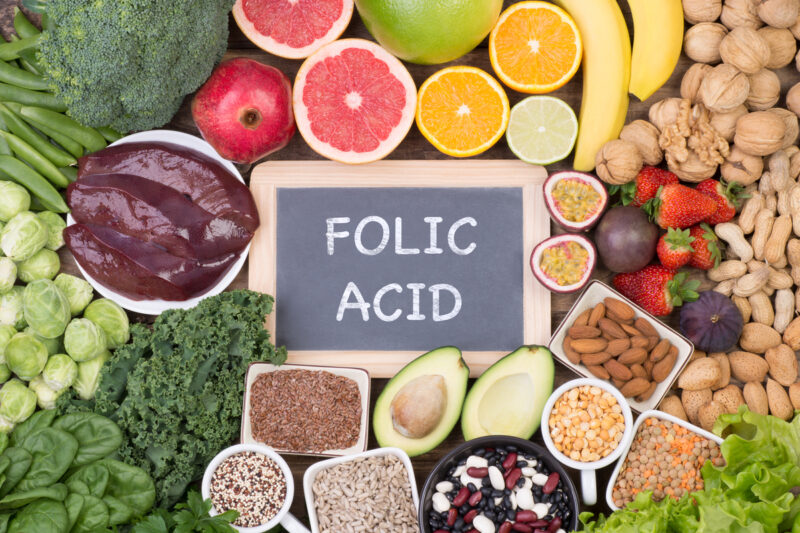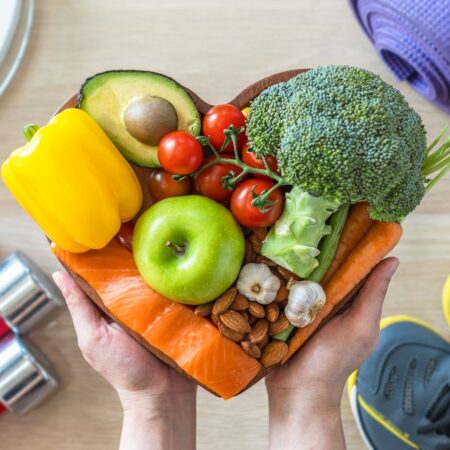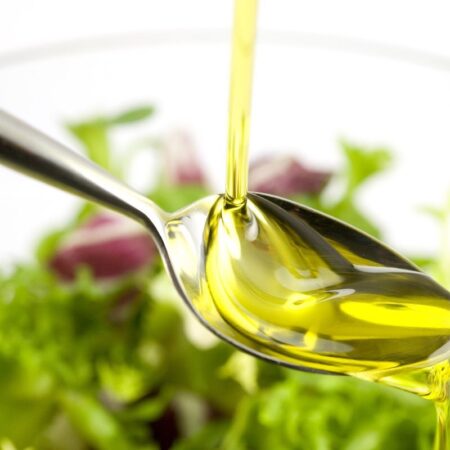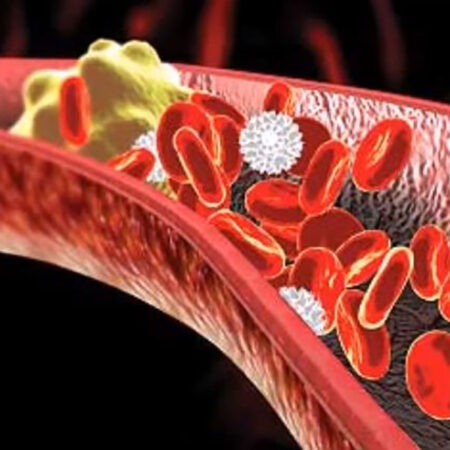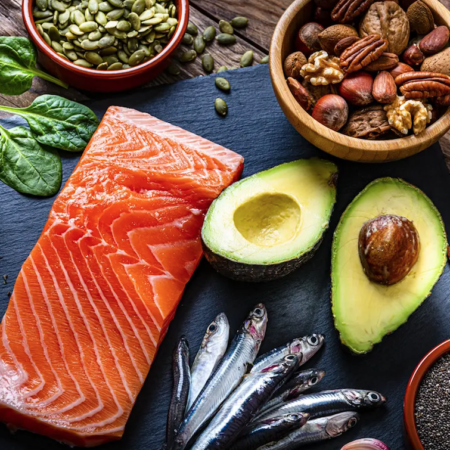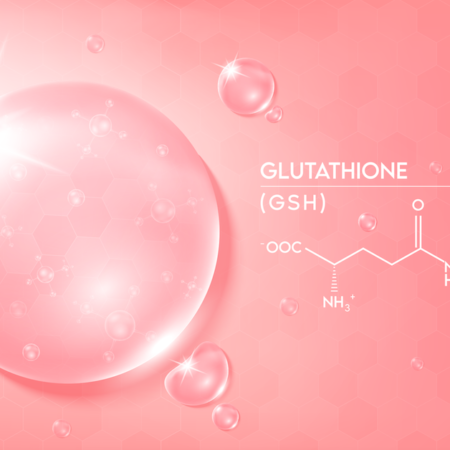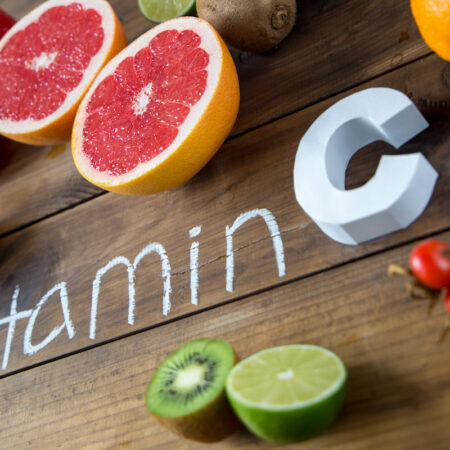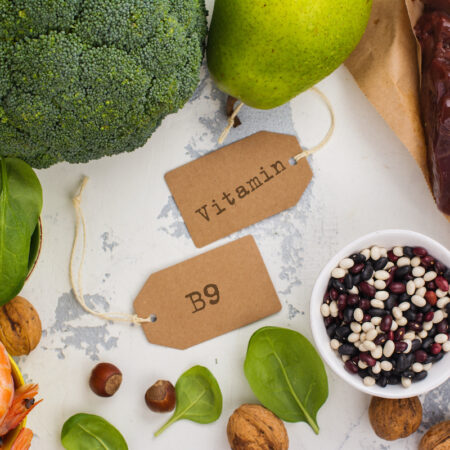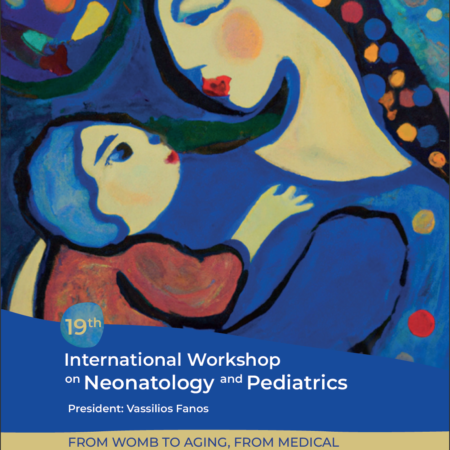The differences between folate, folic acid and vitamin B9
Although frequently used interchangeably, folate, folic acid and vitamin B9 are not exactly the same thing. We are talking about micronutrients essential for our health, which belong to the vitamins of group B. But… be careful, let’s clarify things before going into their characteristics and properties, so as to avoid any confusion. What are folates?
They are substances present in some foods which, once ingested, are transformed into vitamin B9. So let’s say that folates – obtainable only from food sources – represent the “natural” form of B9.
Folic acid (monopteroylglutamate acid) is the synthetic molecule that is taken in the form of a food supplement. In the body it always becomes vitamin B9. So folic acid is the synthetic and oxidized form of B9.
Vitamin B9 from folate or folic acid is defined as water soluble, which means that in order to be bioavailable it must be taken with water, where it can dissolve. In health conditions, food sources of vitamin B9, folate, should be sufficient to cover our daily requirement. However, this doesn’t always happen.
With an integration of folic acid we can in fact ensure a highly bioavailable reserve (85% of absorbability against 50% of food sources) of vitamin B9 in cases where our need increases (as happens in pregnancy), or in those cases in which the diet alone is not sufficient to guarantee the correct quota.
A lack of folate/vitamin B9, in fact, can lead to serious consequences, causing states of anemia and muscle and heart weakness.
Returning to folate and nutrition, let’s find out which foods are naturally rich in it, in order to understand if we need to change something in our diet.
Foods naturally rich in folate
There are many, fortunately, also suitable for those who follow a vegetarian diet. The main dietary sources of folate include both plant and animal foods. Let’s see them on the list.
- Leafy green vegetables (lettuce, chard, spinach, turnip greens, etc.). Warning: in order for folates to really be present in the food, and for your body to assimilate them, the vegetables must be fresh, and eaten raw or undercooked, otherwise these precious nutrients are degraded and dispersed.
- Other vegetables including artichokes, broccoli, Brussels sprouts and asparagus.
- Legumes including peas
- Liver and offal.
- Dried fruit in shell (almonds, walnuts, peanuts, etc.).
- Fresh fruit, especially citrus fruits, strawberries, kiwis, bananas, melons.
- Whole grains and their flours
- Seafood
Small health tip: although folates are present in good quantities in foods of animal origin – for example in bovine liver, eggs, seafood and cheese – it is better to avoid choosing these foods as the sole or main source, because they also contain a lot of cholesterol and saturated fat. Therefore, it is preferable to focus primarily on vegetable sources, including legumes, and combine them, limiting the consumption of foods of animal origin to 2-3 times a week. Furthermore, also pay attention to the methods of storing and cooking foods containing folates, because these substances are extremely delicate: excessive heat, time and light destroy them.
This is why it is good to buy very fresh foods and consume them as soon as possible, avoiding violent and prolonged cooking and very acidic condiments. There are also foods already fortified with folic acid on the market, such as some types of breakfast cereals, biscuits or rusks. They can be a good option both for children who do not like vegetables or meat so much, and for adults who equally have no “sympathy” for foods naturally rich in folate.
However, we reiterate that if the diet alone is already sufficient to fill the folate requirement and there is no evidence of a deficit, fortified foods and folic acid supplements should not be taken.
How to periodically check the level of folate
Through the metabolomic profile test of organic acids, from a urine sample, we can provide the specialist with all the information relating to the level of folate so as to be able to adequately evaluate the state of health of the metabolism.

